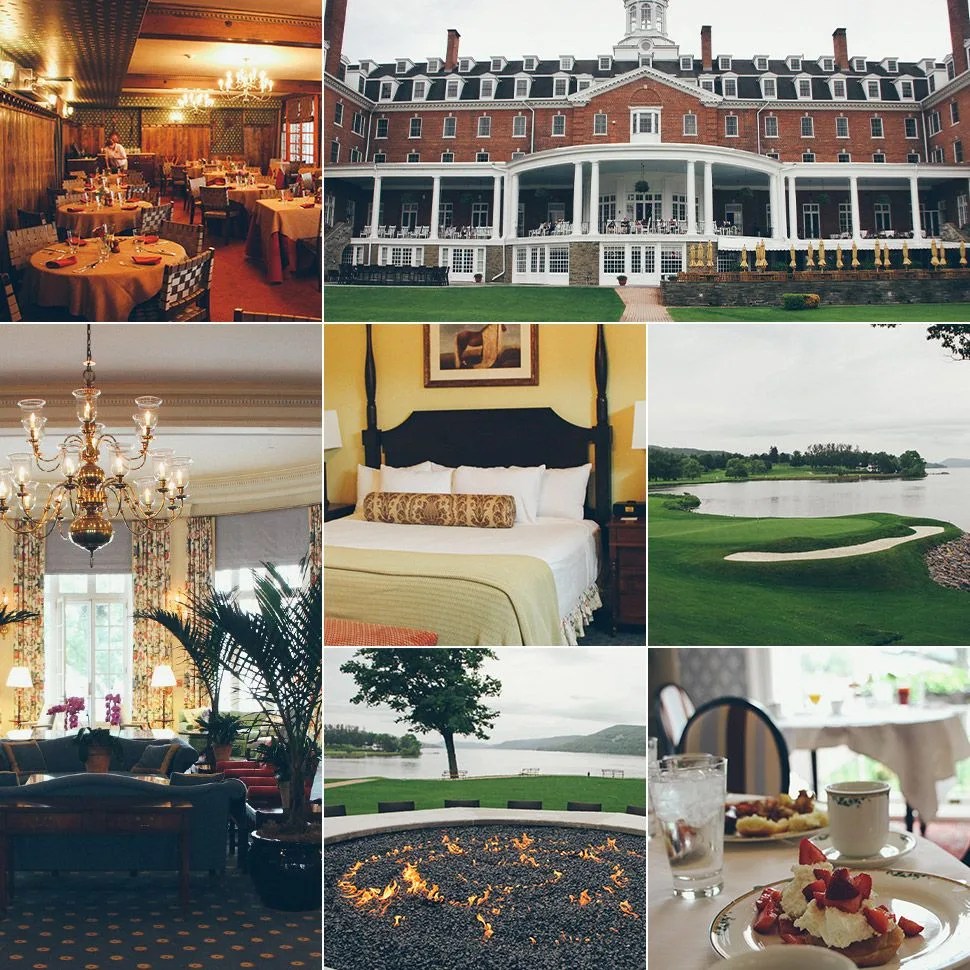A town with a benefactor seems something out of a fairy tale or the Renaissance. But it’s simple, really: the rich family spends fractions of its innumerable riches to watch over the community and its individual citizens and enterprises. If they’re benevolent, the town flourishes; if they’re wicked, well then, you’ve got the perfect setting for a gothic horror novel. But real life is rarely ever so straightforward. A town might have a rich family element, but they’re hardly ever so rich or so invested in the community to truly serve as a patron. But Cooperstown, New York, has the Clarks, who made their immense fortune from a half ownership of the Singer Sewing Machine patent. They are of the benevolent variety of patron. Cooperstown is also the hometown of James Fenimore Cooper and the setting for several of his most famous works. Oh, and baseball was founded here in 1839 by Abner Doubleday. (Actually, it wasn’t, but don’t mention that to a Cooperstown native.)
MORE HOTEL REVIEWS: The Rothchild 71 | Scarp Ridge Lodge | Hyatt Key West
This small town of around 2,000 inhabitants is, then, a natural seat of Yankee Americana. The Otesaga Resort Hotel, which has sat at the town’s outskirts on the shore of Otsego lake — called “Glimmerglass” today just as it was in Fenimore Cooper’s novels — has been a part of that identity since its inception in 1909. That’s old (over 100 years for those mathematically challenged), but then the massive estate house was, before its re-opening as a hotel, a girl’s school for many years. It was bought and transformed into a hotel by the Clark family and has been owned by them ever since; it’s as much a part of Cooperstown’s unique mystique as Cooper’s Deerslayer, or the Baseball Hall of Fame downtown. That translates for the modern guest to an old-school luxury that treasures heritage more than almost anything else.
It shows from the instant you drive past its palatial wrought-iron gates, look up at its imposing H-shape and enormous columned facade, and walk through its massive front doors into a lobby that is decades away from chic. The Otesaga’s main foyer is just that — a high-ceilinged chamber with a huge brass-and-glass chandelier, cozy armchairs at the back (set for perfect sitting in front of the huge picture windows that face the lake), acres of wood paneling and a wooden rocking horse (oddly enough) in the corner. Once you shake off the feeling that you could be in The Shining, the overwhelming feeling is of a grandeur that most modern hotels are too shabby, underneath all their glitz and Nordic furnishings, to pull off.
None of the Otesaga’s oldness feels shoddy — it feels measured and stubborn and proud. It feels grand.
That’s easily the theme of the Otesaga. There are several small lounges helmed by amiable barmen tucked away off its corridors; the rooms are spacious and traditionally trimmed, with exceptionally large bathrooms and shuttered windows; the main dining room (Glimmerglass) is a true ballroom, serenaded by a lone pianist and served by a top-notch chef (try the coffee-ground-rubbed ribeye); the back veranda stretches nearly the length of the hotel and is filled constantly by guests sipping cocktails in rocking chairs, gazing at the green hills across the lake; it was once visited by the Sci-Fi channel show Ghost Hunters and is listed by some as one of the best “haunted hotels” to visit in the U.S.; the elevators have brass railings and mirrors and go up and down the hotel’s five floors with slight shudders as they start and stop. The original architecture has been judiciously protected by the Clark family. None of its oldness feels shoddy — it feels measured and stubborn and proud. It feels grand.
There are modern elements, of course. Out back there’s a new fire table to sit around in the evenings with good company and a cigar. The Hawkeye Bar and Grill Downstairs will be renovated later this year to be made larger. On the lake there’s a new dock where visitors can dip in their toes or launch a canoe ride. Wi-fi’s in every room for your pleasure — though you should probably just leave that modern baggage behind.
